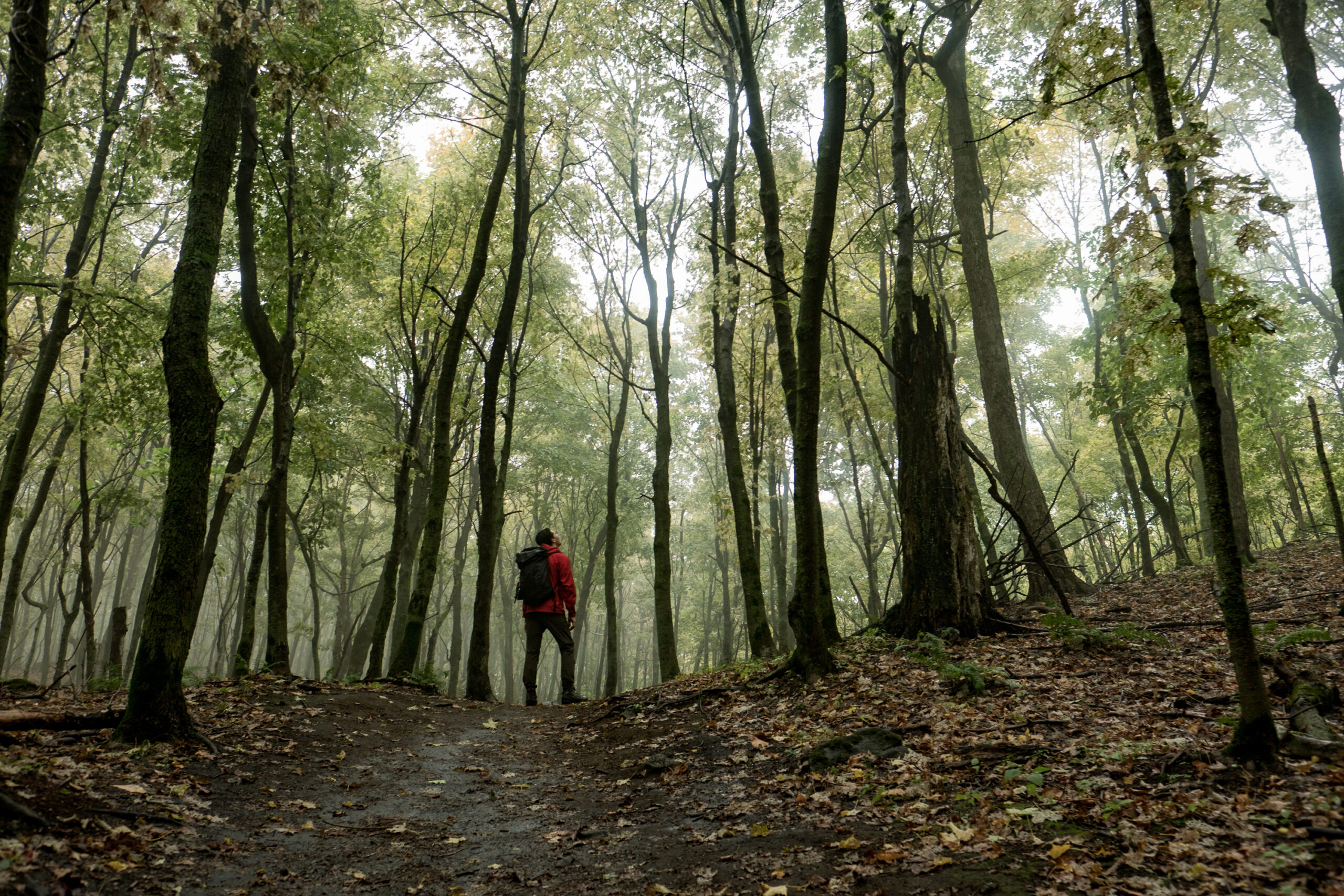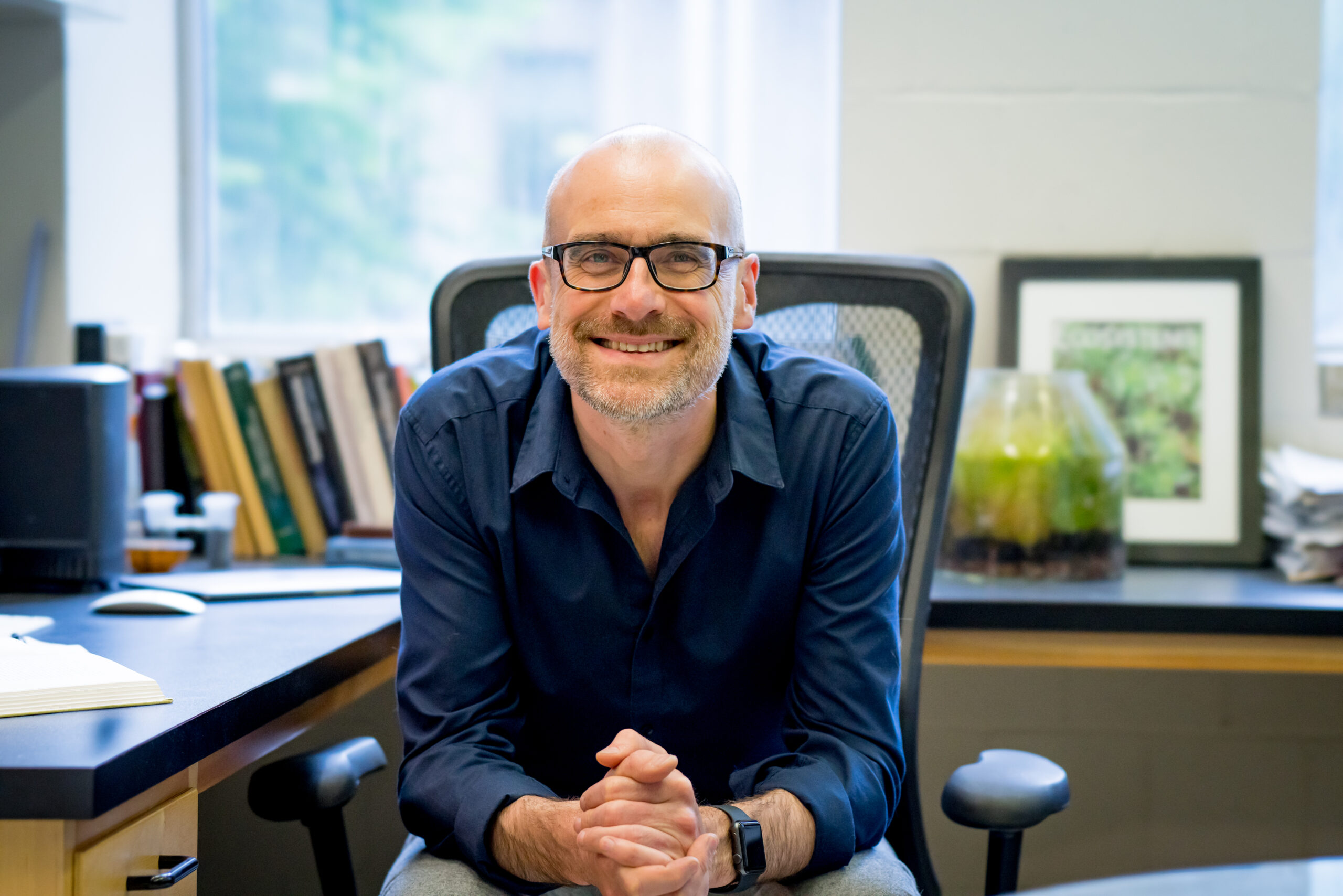
Located in the heart of the Montérégie region, in Mont-Saint-Hilaire, McGill University’s Gault Nature Reserve comprises more than 1,000 hectares of lush old-growth deciduous forest, just 40 km from Montreal. A refuge for migratory birds, Gault is at the heart of Canada’s first UNESCO-recognized biosphere reserve.
Left to McGill in 1958 by Brigadier Andrew Hamilton Gault, the reserve offers unrestricted panoramic views of the surrounding region and helps protect what remains of the original forest of the St. Lawrence Valley. Accessible to the public, it offers 25 km of trails, open to visitors year-round.
Hiking, birdwatching, cross-country skiing, self-guided tours, and treasure hunts amid nature: the Gault Nature Reserve offers visitors young and old a multitude of ways to experience and appreciate the biodiversity it harbours. In addition to being a popular recreational site, welcoming about 300,000 visitors annually, Gault is also a common destination for school field trips, visited by thousands of elementary, secondary, and CEGEP students each year. Some 7,700 students explored the reserve’s trails in 2023 alone.
A duty to protect nature, transmit knowledge
For Andrew Gonzalez, a professor in the Department of Biology and a distinguished researcher focused on nature conservation, it’s essential that a university have a sense of commitment to the broader community in which it’s situated.

“In all kinds of ways, the university has a responsibility to contribute to society. McGill is lucky to have been given such a gift, and to be able to showcase the richness of Gault Nature Reserve. Protecting this space for nature is a privilege, and, as a university, it’s essential to go beyond research and teaching, and to share this wealth with the community,” he explains.
McGill’s role is not only to transmit the knowledge it develops to future generations, but also to find ways this knowledge can be put to practical use in the world around us. Gault Nature Reserve, buoyed by this mission, is devoted to protecting biodiversity; in turn, McGill promotes Gault’s value and natural wealth to the community.
This connection between nature and society is close to Gonzalez’s heart. “It’s essential to protect this space not only for the sake of nature itself, but, because we live within nature, also for our own – and society’s – sake. In my view, this goes beyond a simple contribution to research or teaching. The biodiversity at Gault is exceptional, and it’s a jewel that must be shared.”
Gonzalez holds the Liber Ero Chair in Conversation Biology and heads LEAP (Large Experimental Array of Ponds), a cutting-edge research project at Gault funded by the chair as well as by the federal and provincial governments. Along with a team of 11 researchers, he studies biodiversity on the mountain and in its artificial ponds, looking at the impact of pesticides on aquatic life. The site of numerous academic studies, welcoming students and researchers from UQAM, UQAC, UQTR, Université de Sherbrooke, Université de Montréal and several other universities, Gault is a vantage point for observing how nature is affected by human activity and climate change.
“It’s clear that the public is worried about climate change, and takes an interest in the destruction of habitats, pollution, the use of pesticides on fields and the expansion of urban areas at the expense of natural ones. When we speak with visitors, we see they want to find the ways and the solutions (to address these problems) but don’t know how they can make a difference. When they see the role of the nature centre, they realize that there are local activities contributing to a broader effort, that the impact of those efforts is real, and that the results are concrete,” he says.
A nature reserve open to its community and to the world
In the coming years, McGill plans to continue to reinforce Gault’s role of educating and sensitizing both the public and university students. “We could consider this a fourth campus, in a way, a living laboratory where students and professors can come not only to learn biology and understand how complex ecosystems function, but most of all, to gauge the importance of preserving biodiversity,” explains Gonzalez.
Persuaded of the enormous value of connected natural spaces like the Gault Nature Reserve, the professor emphasizes the collaborative nature of McGill’s approach. “There is a scientific community centred on Gault that is important to maintain, and the emergence of that collaboration, of that shared understanding of nature and of humanity’s impact on it, goes far beyond simple academic considerations; it speaks of the essential ties that human beings have with each other and with nature, ties they must cherish,” he concludes.
Watch the video below
